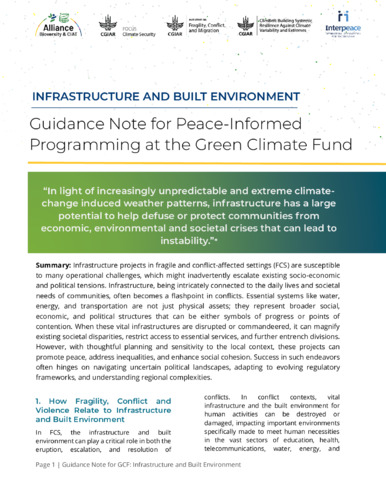Guidance note for peace-informed programming at the Green Climate Fund: Infrastructure and built environment.
Infrastructure projects in fragile and conflict affected settings are susceptible to numerous operational challenges, which might inadvertently escalate existing socio-economic and political tensions. Infrastructure, being intricately connected to the daily lives and societal needs of communities, often becomes a flashpoint in conflicts. Essential systems like water, energy, and transportation are not just physical assets; they represent broader social, economic, and political structures that can be either symbols of progress or points of contention. When these vital infrastructures are disrupted or commandeered, it can magnify existing societal disparities, restrict access to essential services, and further entrench divisions. However, with thoughtful planning and sensitivity to the local context, these projects can promote peace, address inequalities, and enhance social cohesion. Success in such endeavors often hinges on navigating uncertain political landscapes, adapting to evolving regulatory frameworks, and understanding potential regional complexities.

